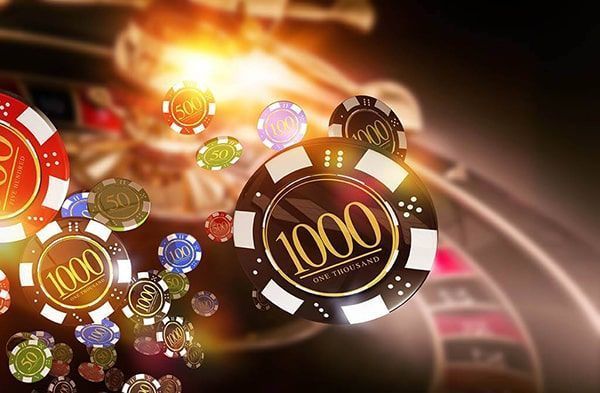
The Paradox of Free Will: Exploring Libet’s Experiments
In the realm of neuroscience and philosophy, few topics ignite as much debate as the concept of free will. One of the most significant figures in this conversation is Benjamin Libet, an American neurophysiologist whose experiments in the 1980s revolutionized our understanding of consciousness and decision-making. Libet’s findings challenge our fundamental assumptions about how and when we make choices. This article delves into the complexities of Libet’s experiments and their broader implications, particularly regarding the nature of free will.
Background on Benjamin Libet
Benjamin Libet was born in 1916 and his work primarily revolved around the understanding of brain activity and its relationship to human consciousness. One of his most famous experiments involved the use of electroencephalograms (EEGs) to measure brain activity in relation to conscious decisions. Libet’s pivotal experiments aimed to understand the precise moment at which a decision is made and how this relates to the feeling of free will.
The Experiment: What Libet Did
The classic experiment conducted by Libet involved participants being instructed to flex their wrist whenever they felt the urge to do so. They were asked to note the time they consciously decided to move, using a clock to indicate this moment. Simultaneously, Libet recorded their brain activity using EEGs. What he discovered was astonishing: brain activity indicating the decision to move preceded the participant’s conscious awareness of that decision by around 200 milliseconds.
In essence, the brain appeared to initiate actions before the individual was even aware of wanting to perform them. This finding posed serious questions regarding the nature of free will. If our brains are making decisions independent of our conscious thought, what does that mean for our understanding of autonomy and self-control? You can read more about these topics and explore other aspects of decision-making and autonomy at Libet https://li-bet.casino/.
The Implications of Libet’s Findings
Libet’s conclusions have sparked a plethora of discussions among philosophers, neuroscientists, and psychologists. One of the primary takeaways is that while we may feel like we are in control of our decisions, much of our decision-making occurs unconsciously. This realization introduces a complex paradox; if our conscious self is not primarily responsible for decision-making, should we reevaluate concepts like moral responsibility, punishment, and free agency?
Philosophical Interpretations
The debate surrounding Libet’s work has led to various philosophical interpretations of free will. Some argue for a compatibilist view, suggesting that even if our unconscious mind initiates actions, we still possess a form of free will insofar as we can make decisions based on rational deliberation once we become aware. Others adopt a more deterministic perspective, arguing that all actions are predetermined by preceding causative factors outside our control.

Challenges to Libet’s Conclusions
While Libet’s experiments are foundational, they also face criticism. Critics argue that the results may not universally apply to all forms of decision-making. For example, complex decisions involving moral consideration may engage different cognitive processes that Libet’s experiments did not capture. Furthermore, some researchers assert that Libet’s interpretation of his findings as evidence against free will may be an overreach, advocating for more nuanced understandings of choice and responsibility.
Further Research: Expanding on Libet’s Work
In the wake of Libet’s experiments, a myriad of studies have sought to build upon his findings and investigate the mechanisms of decision-making and consciousness. Research has explored the neural correlates of choice and the variability in how different types of decisions are made. Advances in neuroimaging technologies have enabled scientists to observe brain activity in more detail, revealing the complexity of decision-making processes.
Libet’s Legacy: Influence on Modern Neuroscience
Libet’s work extends beyond empirical observations; it has significantly influenced contemporary philosophical discussions and cognitive science research. His findings have led to new inquiries into the subconscious processes that dictate behavior and have opened up discussions about the nature of personal identity and consciousness itself.
Neuroscience and Free Will in the 21st Century
As we move further into the 21st century, the intersection of neuroscience and philosophy continues to evolve. The emergence of artificial intelligence and complex neuropsychological models has added new dimensions to the inquiry into free will. This ongoing dialogue remains vital as we strive to understand our minds, behaviors, and the extent to which we can exercise control over our lives.
Conclusion: The Enduring Questions of Free Will
Benjamin Libet’s experiments serve as a crucial touchstone in discussions about free will and consciousness. While his findings raise intricate questions, they can also spur a deeper investigation into the nature of human experience and autonomy. The implications of his work challenge researchers and philosophers alike to reconsider what it means to make a choice, how we understand our motivations, and the essence of free will itself.
As science continues to uncover the complexities of the human brain, the inquiry into free will will undoubtedly remain a poignant topic of discussion, pushing the boundaries of our understanding of self and the conscious experience.